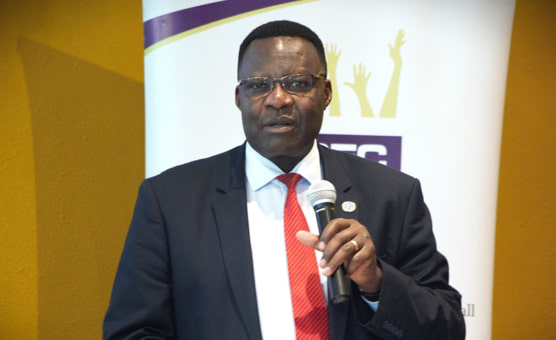NGEC CELEBRATES 13TH ANNIVERSARY: A CALL TO ACTION ON ADHERENCE TO CONSTITUTIONAL MANDATES
On its 13th anniversary, the National Gender and Equality Commission (NGEC) calls upon the national and county governments of Kenya to take urgent and decisive actions to fully comply with Article 27 of the Constitution of Kenya, 2010. This article mandates equality and freedom from discrimination for all people, emphasizing equal treatment, opportunities, and affirmative action measures to address historical injustices and imbalances.
In addition to urging compliance with Article 27 of the Constitution, the National Gender and Equality Commission (NGEC) calls on the State to ensure strict adherence to Articles 53, 54, 55, and 56 of the Constitution of Kenya 2010, which are foundational to protecting the rights of children, Persons with Disabilities (PWDs), youth, minorities, and marginalized groups. The NGEC emphasizes the need for Parliament to enact necessary legislation to operationalize critical constitutional mandates and for Kenya to ratify relevant regional instruments, and international treaties and conventions that enhance greater protection of the rights of Special Interest Groups.
1. Ratification of International Treaties and Conventions
The State must urgently ratify international treaties and conventions related to the rights outlined in Articles 53, 54, 55, and 56 of the Constitution to bolster domestic efforts and align Kenya with global human rights standards:
-
Article 53: Rights of Children
The Optional Protocol to the Convention on the Rights of the Child on a Communications Procedure (OP3 CRC), which allows children to bring complaints about violations of their rights directly to the UN Committee on the Rights of the Child. This ratification would strengthen Kenya's commitment to ensuring children's rights are upheld domestically and internationally.
-
Article 54: Rights of Persons with Disabilities
The Marrakesh Treaty to Facilitate Access to Published Works for Persons Who Are Blind, Visually Impaired or Otherwise Print Disabled. This treaty, which Kenya has yet to ratify, is critical for expanding access to knowledge and education for PWDs, in line with constitutional commitments.
-
Article 55: Rights of the Youth
The ILO Convention No. 181 on Private Employment Agencies to ensure young people have access to decent work opportunities in a fair and equitable environment. Additionally, ratification of the African Youth Charter would further commit Kenya to meaningful youth participation in governance, decision-making, and socio-economic development. ILO Convention No 189 on domestic workers and Convention 190 on violence and harassment in the world of work are key instruments to safety of women and youth.
-
Article 56: Rights of Minorities and Marginalized Groups
The UN Declaration on the Rights of Indigenous Peoples (UNDRIP), which would strengthen protections for minorities and marginalized groups, aligning national laws and practices with international standards that recognize and protect their unique rights.
2. Enactment of Legislation for Gender Equality
As a matter of priority, Parliament to enact legislation to actualize the two-thirds gender principle outlined in Articles 27(8) and 81(b) of the Constitution of Kenya. Despite the constitutionally mandated requirement that not more than two-thirds of members of elective public bodies should be of the same gender, this principle remains unmet in many areas of governance. NGEC calls for:
-
Enactment of a Comprehensive Gender Equality Law: This law should outline specific measures, timelines, and sanctions for achieving the not more than two-thirds gender principle, ensuring that both national and county governments are compliant.
-
Operationalization of Article 100 of the Constitution: Article 100 mandates Parliament to enact laws that promote the representation of marginalized groups, including women, youth, PWDs, minorities, and marginalized communities. Parliament must prioritize enacting legislation that will ensure effective representation and participation of these groups in all public decision-making bodies.
-
Review and enact a revised legislation of Persons with Disabilities
-
Amendment of the PFM Act: There is a need to amend the PFM Act to include a clause stipulating that budget allocations to various MDAs should only be released if their budget statements are gender and equity-responsive.
-
Meaningful Engagement and Inclusion of Youth in Governance
The NGEC calls on the State to move beyond consultations and adopt deliberate strategies to include and involve young people in governance at all levels. This includes:
-
Development of a National Youth Inclusion Framework: This framework should outline clear guidelines for the inclusion of youth in all aspects of governance, including policy formulation, implementation, and evaluation. It should provide specific targets and indicators for measuring youth engagement across sectors.
-
Youth Empowerment and Capacity Building: The State to expand programs and investment on initiatives that build the capacity of young people to participate meaningfully in priority spheres of life including decent work, health, and governance. This includes providing access to education, skills training, mentorship, patenting, preservation of creativity, and opportunities for experiential learning within government institutions.
Achieving equality and non-discrimination, as outlined in the Constitution, is fundamental to Kenya's democratic and human development and international standing.
The Commission stands ready to support and collaborate with all stakeholders to achieve these critical goals for the benefit of all Kenyans.
SIGNED
THOMAS OKOTH KOYIER, EBS.
Ag. CHAIRPERSON
Ag. Chair Commissioner Thomas Koyier,EBS


Comments